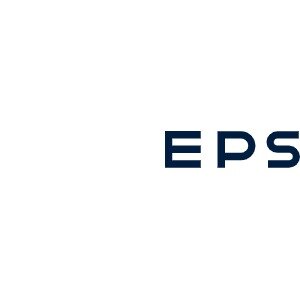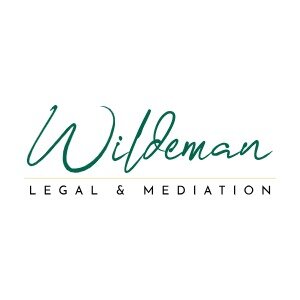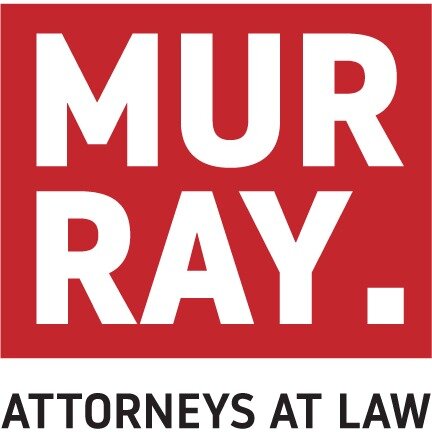Best Renewable & Alternative Energy Lawyers in Curaçao
Share your needs with us, get contacted by law firms.
Free. Takes 2 min.
Or refine your search by selecting a city:
List of the best lawyers in Curaçao
About Renewable & Alternative Energy Law in Curaçao
Renewable and alternative energy are gaining momentum in Curaçao as the island looks to reduce its reliance on fossil fuels and move toward sustainable energy solutions. Renewable energy refers to energy sourced from natural processes that are continually replenished, such as solar, wind, and biomass. The government of Curaçao actively promotes the transition to cleaner energy sources to support environmental goals and energy independence, making the legal landscape for renewable and alternative energy increasingly dynamic and significant.
Why You May Need a Lawyer
Navigating the legal landscape of renewable and alternative energy can be complex. Individuals and businesses may require legal assistance in a variety of situations, such as securing permits for installing solar panels, negotiating Power Purchase Agreements, addressing regulatory compliance, or resolving disputes related to energy production and distribution. Lawyers can also help with land use and zoning issues for wind or solar farms, understanding incentives and subsidies, and guiding foreign investors through local regulatory structures. Legal counsel ensures your project complies with all relevant local rules, which is crucial to avoid costly delays or penalties.
Local Laws Overview
Curaçao has taken significant steps to encourage the adoption of renewable energy with policies that support investment and development. Some key aspects of local law relevant to renewable and alternative energy include:
- Regulations on Self-Generation: There are specific guidelines governing how private individuals and businesses can generate their own electricity using solar photovoltaic (PV) systems, including safety standards and requirements for connecting to the public grid.
- Power Purchase Agreements and Net Metering: There are regulations outlining how producers of renewable energy can sell electricity back to the national grid and the terms under which surplus energy is credited.
- Permits and Zoning: Projects involving large-scale installations such as solar farms or wind turbines need to comply with land use, environmental, and building permit requirements.
- Government Incentives: Curaçao may offer incentives such as tax exemptions or reduced import duties for renewable energy equipment to encourage investment in the sector.
- Environmental Impact Assessments: Major renewable energy projects often require careful assessment to ensure they do not adversely impact protected habitats or the wider environment.
Frequently Asked Questions
What types of renewable energy are most common in Curaçao?
Solar energy is currently the most prevalent form of renewable energy on the island, followed by some wind energy projects. Opportunities for other sources like biomass are also being explored.
Can a homeowner install solar panels without special permission?
While small-scale residential solar installations are encouraged, certain permits and grid connection agreements are typically required to ensure safety and compliance with local standards.
Are there tax incentives for renewable energy projects?
The government periodically offers tax exemptions or reduced import duties on renewable energy equipment, although it is important to check current incentive programs as they may change over time.
Is net metering available to private producers?
Net metering, which allows you to feed surplus electricity from solar panels back into the grid in exchange for credits, is available but subject to specific regulations and agreements with the local utility provider.
How do businesses start a commercial renewable energy project?
The process typically involves securing the necessary permits, conducting environmental assessments, complying with zoning rules, and entering energy supply agreements with local utilities.
What legal challenges might arise with renewable energy projects?
Common legal challenges include obtaining permits, navigating environmental regulations, resolving land use disputes, and negotiating contracts with energy buyers or suppliers.
Can foreign investors participate in Curaçao's renewable energy sector?
Yes, foreign investment is allowed and encouraged, though investors must comply with Curaçaoan business registration, zoning, and energy sector regulations.
Is energy storage regulated in Curaçao?
Energy storage is an emerging aspect of renewable energy, and while currently there are limited regulations, future policies are likely as adoption increases.
Are there specific safety standards for renewable energy installations?
Yes, installations must comply with local and international electrical safety codes to protect both users and the public grid infrastructure.
Who should be consulted first for a renewable energy project?
It is advised to consult with a lawyer experienced in renewable energy law early in the process to ensure you meet all legal and regulatory requirements from the start.
Additional Resources
When seeking further information or support in renewable and alternative energy law, consider reaching out to the following:
- Refineria di Kòrsou (RdK): The government entity responsible for the development of energy policy.
- Aqualectra: The main utility company managing electricity distribution and renewable integration in Curaçao.
- Ministry of Environment and Nature (Ministerie van Gezondheid, Milieu & Natuur): Oversees environmental permitting and related regulations.
- Chamber of Commerce: Can provide information about business registration and regulations relevant to energy projects.
- Local Bar Association: For referrals to attorneys specializing in energy and environmental law.
Next Steps
If you are considering a renewable or alternative energy project in Curaçao or have encountered a legal issue in this sector, your first step should be to consult with an attorney specializing in energy law. An expert can guide you through permits, contracts, compliance, and negotiations to ensure your interests are protected and your project remains compliant. Start by gathering any relevant documents, outlining your goals, and reaching out to a qualified lawyer. For more complex projects, consider assembling a team that includes legal, technical, and local regulatory expertise to navigate Curaçao’s evolving energy landscape successfully.
Lawzana helps you find the best lawyers and law firms in Curaçao through a curated and pre-screened list of qualified legal professionals. Our platform offers rankings and detailed profiles of attorneys and law firms, allowing you to compare based on practice areas, including Renewable & Alternative Energy, experience, and client feedback.
Each profile includes a description of the firm's areas of practice, client reviews, team members and partners, year of establishment, spoken languages, office locations, contact information, social media presence, and any published articles or resources. Most firms on our platform speak English and are experienced in both local and international legal matters.
Get a quote from top-rated law firms in Curaçao — quickly, securely, and without unnecessary hassle.
Disclaimer:
The information provided on this page is for general informational purposes only and does not constitute legal advice. While we strive to ensure the accuracy and relevance of the content, legal information may change over time, and interpretations of the law can vary. You should always consult with a qualified legal professional for advice specific to your situation.
We disclaim all liability for actions taken or not taken based on the content of this page. If you believe any information is incorrect or outdated, please contact us, and we will review and update it where appropriate.
Browse renewable & alternative energy law firms by city in Curaçao
Refine your search by selecting a city.













